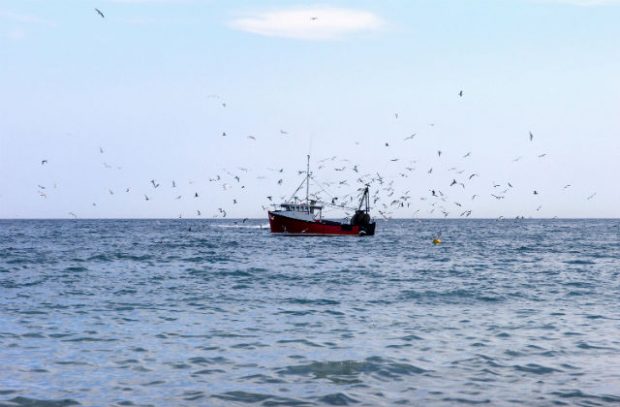
Today there has been coverage in the Times, Telegraph, Guardian and the i of an investigation led by Greenpeace in which it is claimed that large commercial fishing vessels, also known as supertrawlers, have doubled the time they spent fishing in the UK’s Marine Protected Areas in the first six months of 2020, compared to the whole of 2019. The environmental group also launched a petition calling the government for a ban on supertrawlers in the UK’s Marine Protected Areas.
We have reiterated that not all fishing activities in Marine Protected Areas require management – just those that are likely to damage the features of a site, typically such as trawling on the seabed. The Marine Management Organisation (MMO) continues to work hard to monitor fishing activity in English waters, with dedicated enforcement and surveillance work to protect fisheries, including offshore patrol vessels for at-sea surveillance.
The Fisheries Bill, currently going through Parliament, proposes new powers to allow the introduction of management measures both within our Marine Protected Areas and across English waters. The Bill strengthens the MMO’s powers in a variety of areas, including ensuring that they can restore and enhance, as well as conserve, the marine environment in the offshore zone, and to continue to support the delivery of the government’s Blue Belt Programme.
Furthermore, the Fisheries Bill prohibits any commercial fishing vessel from operating in UK waters without a licence. It also provides powers to attach conditions (such as the areas that can be fished, species that can be caught and the type of fishing gear that can be used) to fishing vessel licences. Foreign vessels operating in UK waters will have to follow UK rules, including the conditions that are attached to their commercial fishing licence.
A Defra spokesperson said:
The UK is a global leader in the fight to protect our seas with our ‘Blue Belt’ of protected waters nearly twice the size of England.
The Common Fisheries Policy currently restricts our ability to implement tougher protection, but leaving the EU and taking back control of our waters as an independent coastal state means we can introduce stronger measures.
The Government is currently considering the recommendations of the Benyon Review into Highly Protected Marine Areas, which are areas of the sea that allow the protection and recovery of marine ecosystems free from human activity.
2 comments
Comment by William Hughes-Games posted on
Giving licenses to foreign fishing boats is the same as having no regulations at all. The only regulation that is clear and easy to enforce is to make the UK EEZ off limits to all but UK fishing boats. Then to make your best fishing areas off limit to UK boats. The fishing in the non-protected areas will rapidly become so good that hook and line methods will result in great catches and there will be no need for destructive nets and bottom trawls. Any boat caught fishing in a forbidden areas is emptied of fuel and oil and sunk. https://mtkass.blogspot.com/2010/12/fisheries-policy-lets-change-tacks.html
Comment by Suzi posted on
And how will this be policed with cuts to all services by this joke of an administration?